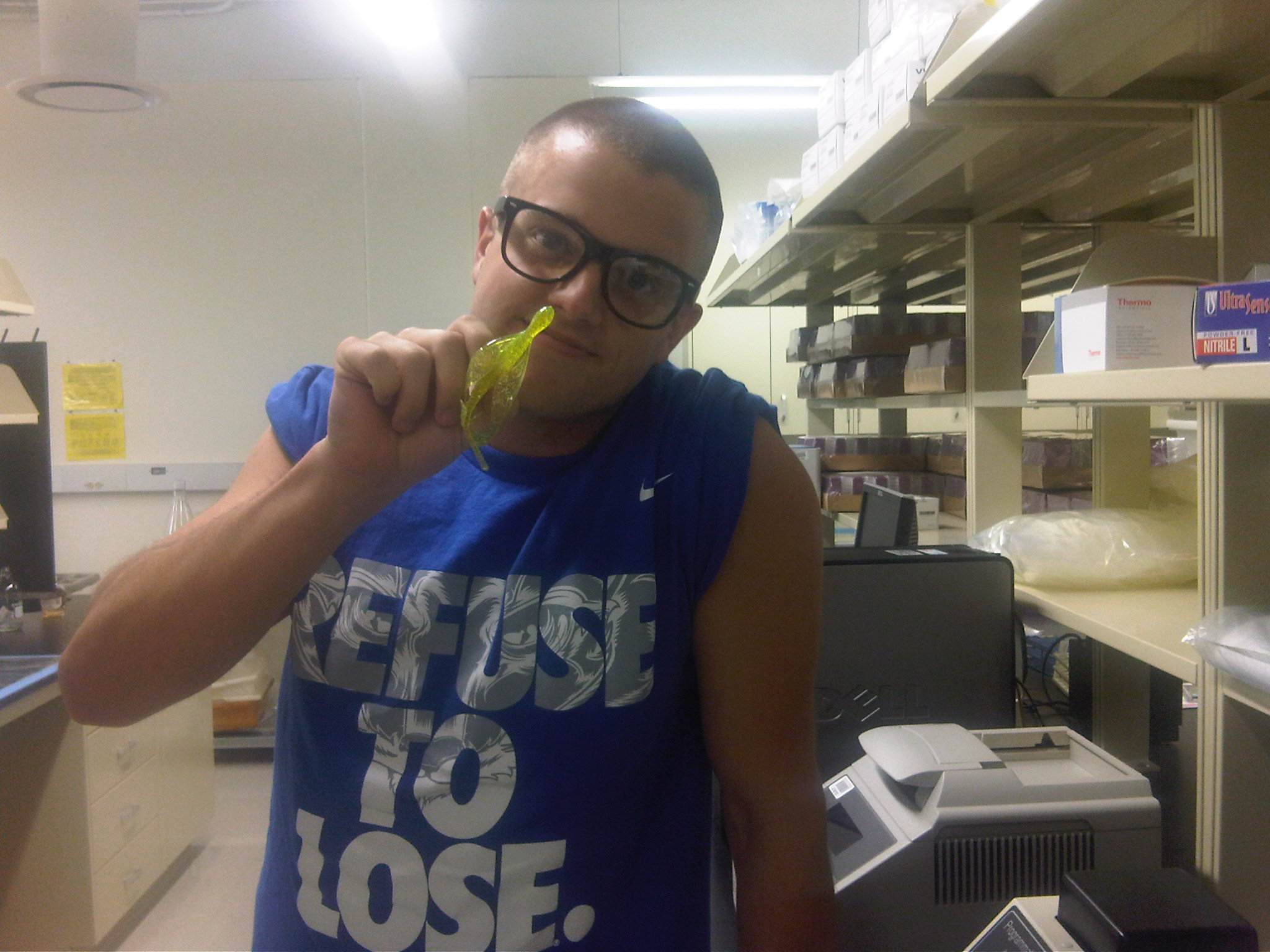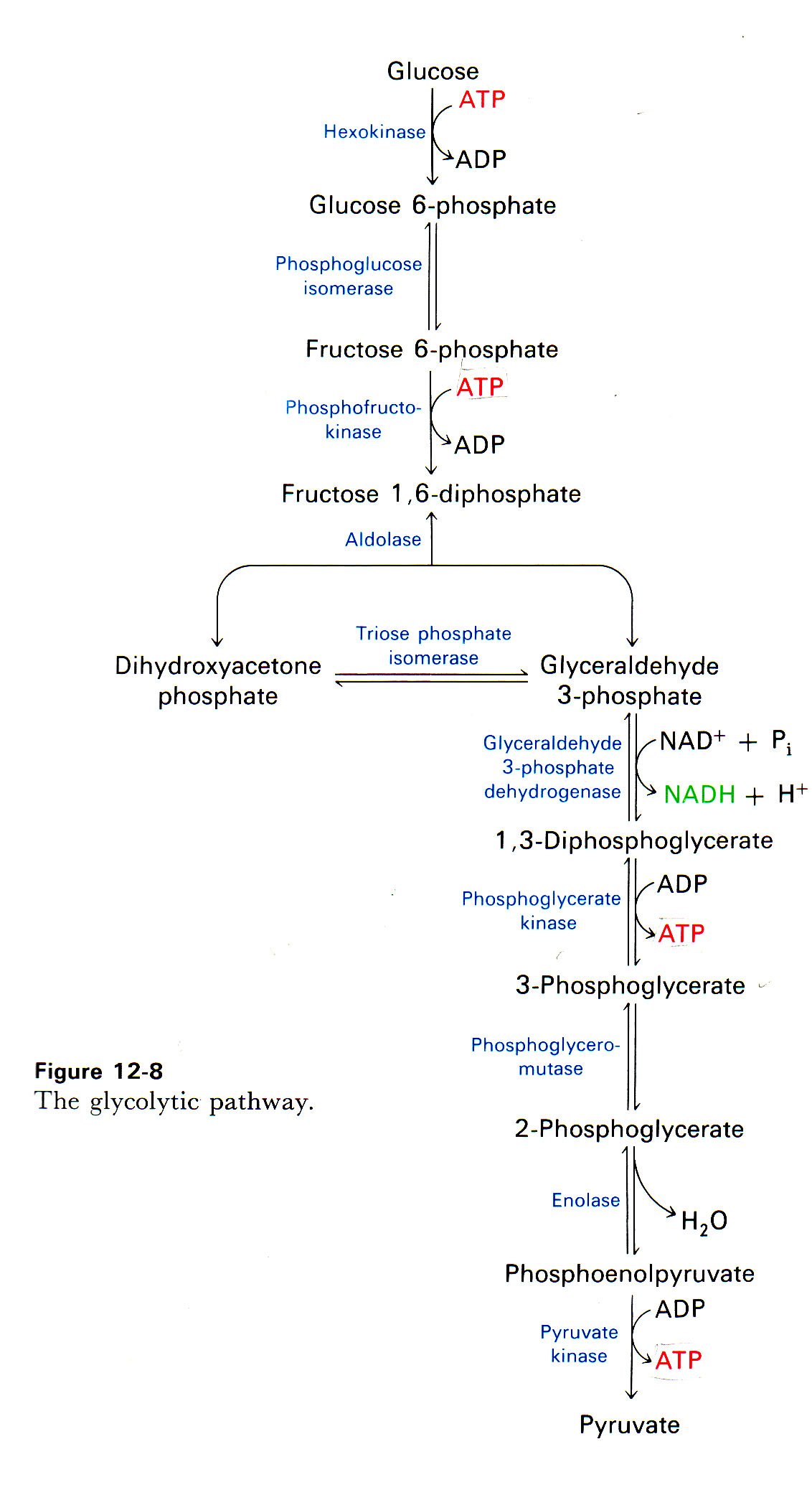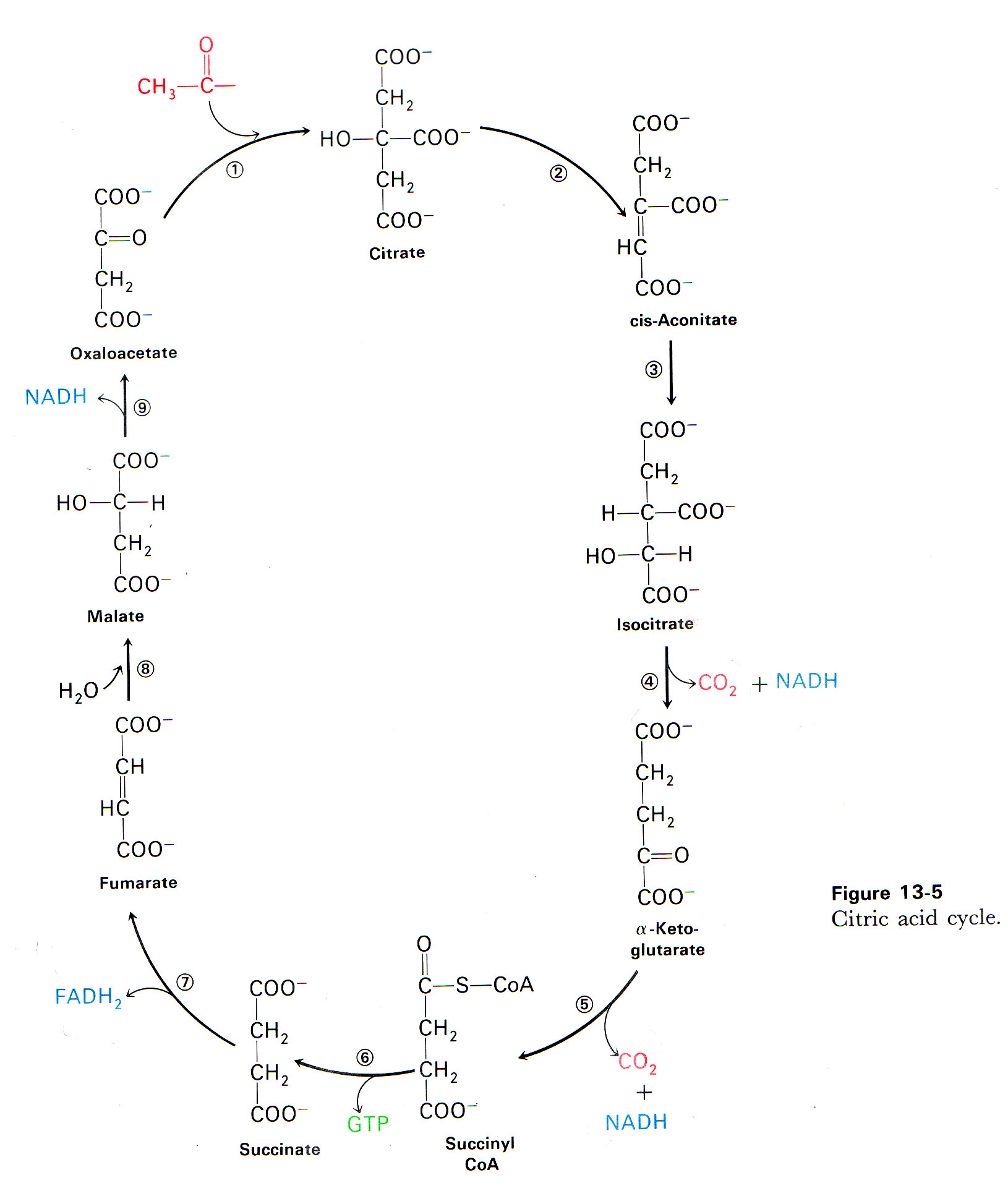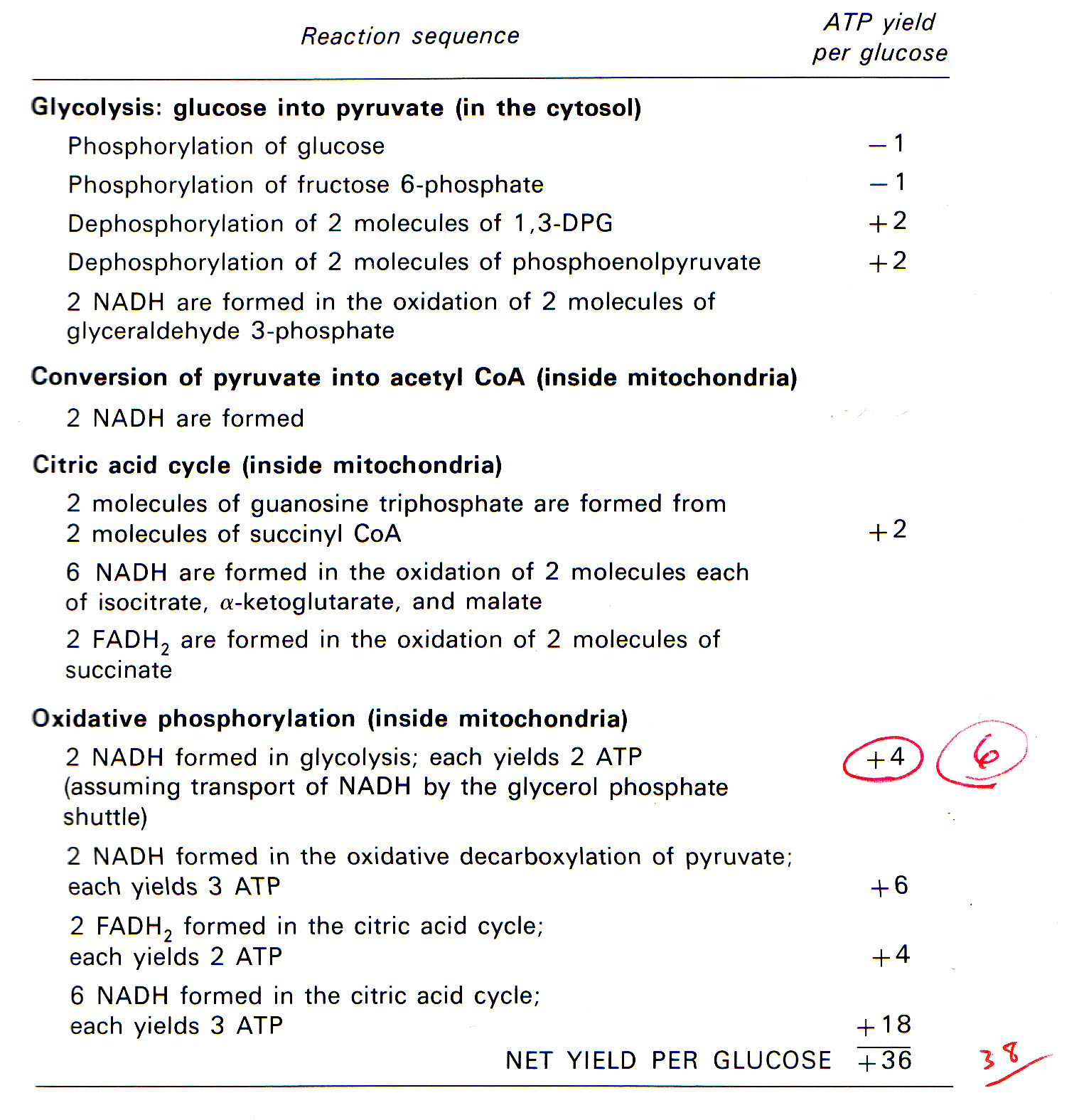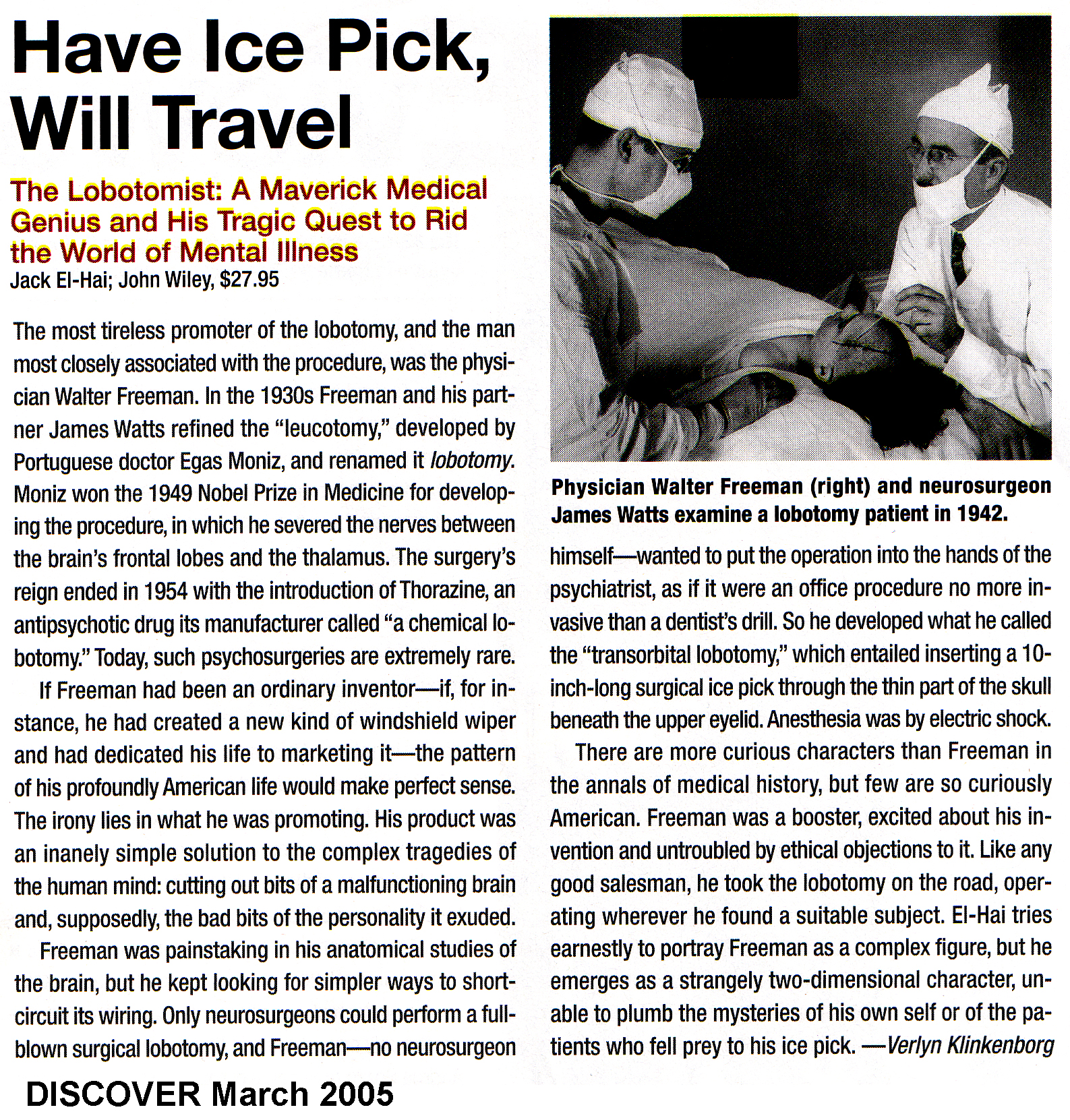|
BIO350: Lecture
Schedule for Bio 350, FALL 2011 (T & TH 8:00 AM- 9:15 AM)
Lecture,
Day, Date, Topic Reading, Lecturer (note --download
podcast to your own computer then open)
1
......... Th 8/25 ......... Introduction to course and physiology .........
Chapt 1&2, 3 ECHO 360 link (400 MB file, just click on LAUNCH)
the sound of the movie clip on YouTube did not record on Echo360 but you can watch the clip here
2......... T 8/30 ......... Molecules, Energy and Biosynthesis .........
Chapt 3 ECHO 360 here
To start thinking about energy watch this and enjoy . (here)
In case you need to chillout and relax from stress of starting back to school go here to hear
3 ......... Th 9/1......... Membranes, Channels and Transport/ Physical
basis of neuronal function......... Chapt. 4, & 5
This ECHO 360 did not have voice. I think the mic was off on head set. You can look at the power points for the day to see what was covered.
4 ......... T 9/6 ......... Physical basis of neuronal function.........
Chapt. 5 ECHO here
5 ......... Th 9/8 ......... Physical basis of neuronal function &
start on Chapter 6 ......... Ch. 5/6 ECHO here
To relax this weekend you need to hear this music maybe some more as well here
6 ......... T 9/13 ......... Communication along and between neurons .........
Ch. 6 ECHO here
.........
Th 9/15 Exam 1 .........
Ch1- 6part
7......... T 9/20 ......... Communication along and between neurons.........
Ch. 6 ECHO 360 here
8......... Th 9/22 ......... Communication along and between neurons .........
Ch. 6 ECHO360 here
9......... T 9/27......... Sensory Mechanisms......... Ch. 7 ECHO 360 here
10 ......... Th 9/29 ......... Sensory Mechanisms......... Ch. 7 ECHO 360 here
11......... T 10/4......... Sensory Mechanisms/ Organization of Nervous
System......... Ch. 7-8 ECHO 360 here
12......... Th 10/6......... Muscle ......... Ch. 10 ECHO 360 here (I think the sound is a problem) Chill out a bit with this here
13......... T 10/11 ......... Muscle & Behavior ......... Ch 10-11 ECHO 360 here
14 ......... Th 10/13 ......... Muscle & Behavior......... Ch 10-11 ECHO 360 here; podcast here; Stress relaxation here and here
......... T 10/18 Exam 2......... Ch 6-11 (w/o 9)
15 ......... Th 10/20 ......... Hormones, mechanisms of action .........
Chapt. 9
ECHO 360 here ( CO2 demo on sound ......some dead time due to CO2 presentation)
CO2-Holsinger class presentation (download to your computer then open: 125 mB windows media movie or high res 1.9 GB movie)
16 ......... T 10/25 ......... Hypothalamus-Pituitary ......... Chapt.
9 ECHO 360 here
17 ......... Th 10/27......... Thyroid, parathyroid, adrenal and pancreas.........
Chapt. 9 ECHO 360 here
18 ......... T 11/1 ......... Wrap up endocrine......... Chapt. 9 ECHO 360 here
19 ......... Th 11/3 ......... Cardiovascular......... Chapt. 9 ECHO 360 here
20 ......... T 11/8 ......... Cardiovascular ......... Chapt. 12 ECHO 360 here
21 ......... Th 11/10 ......... Cardiovascular......... Chapt. 12 ECHO 360 here; more stress relaxation here and here
......... T 11/15 Exam 3..............11, 9, 12 post test relaxation here
22......... Th 11/17 ......... Respiration ......... Chapt. 13 ECHO 360 here
23......... T 11/22 ......... Respiration......... Chapt. 13 ECHO 360 here
Th 11/24 Holiday - Thanksgiving
24......... T 11/29......... Ionic and Osmotic Balance ......... Chapt.
14 ECHO 360 here
25......... Th 12/1......... Ionic and Osmotic Balance......... Chapt.
14 ECHO 360 here
26 ......... T 12/6......... Digestion ......... Chapt. 15 ECHO 360 here
27 ......... Th 12/8......... Heat and adaptations......... Chapt. 15,16,
17 ECHO 360 here
M 12/12 Monday12/12/11; FINAL EXAM @ 8:00
AM room 107 ..Chill out a bit with this here & have a good break here
BIO
350 Lab Schedule:
Mon Lab
......... Wed Lab ......... Lab
# ......... Topic
8/29 .................. 8/31..................
1 ..................Modeling biological membranes
--- .......................9/7 ..................2
..................Human: heart and EKG modeling
9/12 ..................9/14 ..................3
..................Crayfish:
Electrical conduction of ventral nerve cord
9/19 ..................9/21
..................4
..................Crayfish: Proprioception and MRO organ
9/26 ..................9/28..................
5..................Crayfish: Sensory integration
10/3 ..................10/5
..................6
..................Crayfish: Intracellular physiology and ion movement
10/10 ...............10/12..................
7..................Crayfish and Rabbit: Neuromuscular physiology
10/17 ...............10/19
..................
8 .................
Scientific writing, data formatting, and manuscript submission procedures
10/24 ..............
10/26.................
9 .................Invertebrates: Endocrine and behavior
10/31 ..............
11/2 .................
10 .................Human: Whole body physiology, effects of temperature and activity
11/7 .................
11/9 .................
11.................Shrimp & Fruit fly: Heart rate control
11/14 ..............
11/16 ...............
12 .................Human & Crayfish: Respiration
11/21 ...............
--- ......................
2.................
Human: Heart and EKG modeling
------------11/22----------- Final Draft of Journal
Manuscript Due
11/28 ..............
11/30 .................
13 ...............
Human & Crayfish: Salt and water balance (renal physiology)
12/5 .................
12/7 .................
14.................
Crayfish: GI
mobility
IMPORTANT
ACADEMIC DATES (Fall 2011)
Aug 24 First day of classes
Aug 30 Last day to add a class
Sept 5 Labor Day: Academic holiday
Sept 14 Last day to drop without W
Oct 17 Midterm of the semester
Nov 4 Last day to drop with W
Nov 23-26 Thanksgiving: Academic holidays
Dec 9 Last day of classes
Dec 13-17 Final Exams
The outline presented
above is a tentative plan for the semester. Specific topics and assignments
are subject to change.
FALL
2011
In this course
you will gain knowledge of and an appreciation for the amazing diversity
of strategies animals have developed for being able to survive, reproduce,
and THRIVE in every ecosystem on this planet. Penguins survive beautifully
in Antarctica, but humans can only survive there using extraordinary measures
we would die within minutes if left naked on the shelf. You will learn
WHY penguins survive and we cannot; why some people are diabetic, and
how insulin can control this disease. You will also find out what happens
to your body during exams (sure stress, but what IS stress and why is
it sometimes very useful, other times, deadly?). You'll be able to amaze
your friends, your parents, your employers with your grasp and knowledge
of the intricacies of animal physiology, why starfish 'explode' if placed
in freshwater, what commonalties we share with whales, and much more.
So, get 'psyched' and get ready to work! There is a lot to learn, but
if you keep at it consistently, you'll keep your stress levels down and
enjoy the course.
One way of defining
life is by the living organism's ability to maintain an internal environment
which is different from the external environment. Furthermore, living
organisms maintain a relatively constant internal environment in spite
of the changing external environment. This phenomena was first clearly
described by the great French physiologist Claude Bernard. The object
of this course will be for you to learn how various organ systems function
to bring about a relatively stable internal environment. To fully understand
how organs accomplish homeostasis you must be able to apply the basic
principles of mathematics, chemistry, physics and biochemistry.
Course Prerequisites
& Description:
An introduction
to the basic principles of animal physiology. An elementary discussion
of the major vertebrate organ systems including nutrition, metabolism,
respiration, circulation, excretion, muscle contraction, peripheral and
central nervous system, and endocrine function emphasizing homeostasis.
Lecture, three hours; laboratory, three hours. Prereq: BIO 150-153 or
equivalent introductory biology sequence, BIO 315, CHE 105, CHE 107.
Official Course
Text
Eckert Animal Physiology: Mechanisms and Adaptations, Fifth Edition, by
David Randall, Warren Burggren, and Kathleen French.
http://www.whfreeman.com/newcatalog.aspx?isbn=0716738635
Principal Learning Objectives:
(Same learning objectives from http://courses.cit.cornell.edu/biog1440/)
1. To gain understanding of the principles of how animals work at the
molecular, cellular, and systems levels. This understanding will come
not by memorizing a large body of facts, but by developing mental models
of the various physiological processes (e.g. transport processes, cell-cell
signaling, metabolism, thermoregulation, circulation, respiration…)
that underlie life.
2. To gain skill in thinking like a physiologist. This requires both asking
and answering questions about physiology, and so involves observing phenomena,
generating hypotheses about the underlying mechanisms, and devising tests
of your hypotheses.
3. To appreciate the physiological similarities and differences between
the physiologies of humans and other organisms, and so to understand how
the study of physiology is thoroughly relevant to your own life and to
the world around you.
BIO 350 Grade Progress
Grades for all exams, labs reports, journal submissions, and quizzes will
be made available through Blackboard. Space is also provided in the table
below for you to track your progress through the course.
Item Max point
value Your Points Earned
Exam 1 100
Exam 2 100
Exam 3 100
Exam 4 (Final Exam) 150
Lab Quizzes 40
Lab Reports 30
Journal Manuscript 30
Lab Attendance/participation 30
Total Points for
Course
580
Final course are
assigned based on the total points accumulated during the semester. Final
course grades are assigned as follows:
522 points to 580 points = A
464 points to 521 points = B
406 points to 463 points = C
348 points to 405 points = D
Less than 348 points = E
Components of the
grade
Mid-semester Exams 1, 2, and 3: Exams will cover material from lectures,
assigned readings, associated labs, and other assigned topics. Exams dates
are given on the topical outline below. Mid-semester exams are not cumulative.
Content for the exams comes from both lecture and lab material, and may
be composed of multiple choice questions, short answer, essay, and/or
fill-in-the-blank questions. Scantron forms will be provided for you.
Bring a #2 pencil and your UK ID with you to each exam. NOTE: You might
not be permitted to take an exam if you do not have your UK ID with you.
Exam results and answer keys will be posted on Blackboard following the
exam date.
Final Exam: The final exam (Exam 4) is cumulative and will cover any and
all material from the entire semester. The final exam will be composed
of multiple choice questions, short answer, essay, and fill-in-the-blank
questions. Content for the exam will come from both lecture and lab material.
Lab Quizzes: Each lab exercise has a web page associated with it. On the
web page one will find movies, protocols to conduct the laboratory exercises,
and hand-outs, and other resources to download. It is expected that you
will view the movie and laboratory protocols prior to coming to the lab
period. Throughout the semester, approximately 10 unannounced quizzes
will be given. Each quiz will address content from the purpose of the
laboratory exercise and the basics of how the lab activity will be conducted.
Lab Quizzes are given during the first 10 minutes of lab. If you are late
and the quiz is in progress, you will not be given extra time. If you
arrive more than 10 minutes late to lab, you will not be permitted to
take the quiz. Quizzes are not announced in advance. Quizzes will be normalized
to equal 40 points, Quizzes are worth 5 points each approximately, depending
on the number of labs conducted. The two lowest quiz scores will be dropped.
Lab Reports: Reports are collected for every lab completed during the
semester. In general, completed reports are due at the start of lab the
following week. Each report should include introduction, methods, results
and discussion sections (two page minimum, five page maximum), plus any
summarizing graphs or tables. All work must be computer generated, and
properly formatted. Statistical analysis is REQUIRED and discussion of
the analysis is expected. No hand written reports (including graphs/tables)
are allowed. Students that miss a lab as a result of an unexcused absence,
or those failing to provide proper documentation for absences, or those
that do not submit work by the submission deadline will not be allowed
to make-up the missed work, submit a lab report for credit, or submit
work late. Late assignments submitted as a result of unexcused absences
will not be accepted. Such submissions (if submitted anyways) will receive
an automatic zero points! All lab reports must be submitted online through
the Safe Assign link available on Blackboard. A separate link will be
made available for each lab report due. After the deadline for the report
has passed, the link is automatically deactivated, and is no longer available.
If you are unable to successfully submit your report through Safe Assign,
it is your responsibility to email a copy of the report in MS Word format,
to your TA BEFORE THE DEADLINE has passed. Late submissions will not be
accepted. Failure to submit your weekly lab reports will negatively affect
your lab attendance points, and may negatively affect your lab report
points.
A sample report
will be provided at the start of the semester. Reports will be used (in
part) to assign lab attendance points at the end of the semester. In addition,
submissions from three randomly chosen labs will be graded for lab report
points. Each graded report will be worth up to 10 points. (30 points total)
Journal Manuscript:
There will be one formal journal manuscript write-up due this semester,
worth up to 30 points. The manuscript is intended to mimic the research
manuscript writing and submission processes required for scientific publication,
and will utilize results collected during one of the lab activities. The
manuscript must be written independently (no group submissions) and is
due no later than Tuesday, November 22, 2011. In addition, one lab session
(October 17, Oct 19) will be dedicated to demonstrating and practicing
proper formatting of the manuscript, as well as data to be used by each
lab section. The writing format described by the Journal of Comparative
Biochemistry and Physiology - Part A: Molecular & Integrative Physiology
will be used. Go to the journal's web page and look up information for
authors at:
http://www.elsevier.com/wps/find/journaldescription.cws_home/525464/description
The "guide to authors" provided by the journal provides the
formatting guidelines that must be followed for this assignment. Additional
information for this assignment will be made available through lab and
posted on the course website.
Lab Attendance/Participation:
Lab attendance and participation is mandatory for this course. Attendance
will be taken every lab by the TA's. It is your (the student's) responsibility
to ensure you sign-in each week with your TA, complete all activities,
clean-up your workstation, and submit all necessary work to receive credit.
Students attending and completing all labs (no absences and all work completed)
will receive 30 attendance/participation points towards their overall
grade for the course. Students are deducted 15 points for each absence
or incomplete/unsubmitted lab work, up to 30 points. Students must complete
the lab assignment, submit completed labs on time, and participate in
all aspects of the lab to receive attendance/participation credit. Students
can also lose up to 5 attendance/participation per lab for failing to
participate during the lab, clean-up after the lab, or for demonstrating
inappropriate behavior during lab, at the discretion of the instructor
or lab TA.
General Course
Policies
1. Return of Graded Materials
Graded materials will not be handed back during lecture, nor will they
be left in the halls or any other public location. To maintain privacy
and minimize class disruption, all graded materials (other than online
content) are available by stopping by my office during normal office hours,
or immediately following lecture. Other pick-up times are available by
appointment. In accordance with University procedures, graded materials
will be held for up to one semester after the end of the course. Final
exams are not returned: however, students are free to stop by my office
to look over their exam.
2. Questions Regarding
Scores or Grades
If you have a concern regarding your posted score/grade for an assignment
or exam, you have 1 week (7 days) from the day the scores are posted to
contest that score. After one week, the score will not be changed. It
is your responsibility to check your scores and follow-up in a timely
manner. We are happy to fix any errors or irregularities in grades within
reason. If you feel that there was an error in grading your exam, you
must submit your request in writing, detailing which questions you feel
are in error and why your answer(s) should receive additional credit.
For instance, if there is information in the text book that supports your
answer, quote the information from the book and provide the page and paragraph
number. All requests must be submitted within 1 week of posting of the
answer key in order for the scores to be changed.
3. Rescheduling Lecture Exams or Labs
Students with documented excusable absences are allowed to make up missed
exams or lab activities according to the following guidelines: For excused
non-emergencies, students must notify the instructor at least 1 week (7
days) before the excused absence.
For lecture related
excused, non-emergency absences, the student must notify Dr. Robin
Cooper at least 7 days in advance of the absence.
For lab related absences, the student must notify either their TA or Dr.
Melody Danley at least 7 days in advance of the absence. Make-up labs
are typically scheduled for Friday morning of the same week during the
excused absence. After this point, the lab materials will be put away
and it may not be possible to make-up the lab.
For emergency-related
absences, students must notify the lecture or lab instructor no later
than 48 hours after the missed exam or lab. Acceptable documentation must
be submitted no later than 3 days, after missed assignment/exam. Excused,
missed work must be completed within one weeks (7 days) of the original
scheduled due date, unless other arrangements have been made with the
TA/instructor. For lecture, if you miss an EXAM #1, 2 or 3, you will have
to make up the missed exam in the hour immediately following the 1st hour
of Exam #4. These make-ups will be comprehensive over the entire textbook.
If you miss two
lecture exams you will be encouraged to take an incomplete in the course.
In all cases,
you must present a doctor's note, or other (as outlined above) to the
instructors within 3 calendar days of missing any exam.
There is no make
up exam for Lecture EXAM #4 (Final). If you miss the final, you will not
be able to take an incomplete in the course without discussing with us
the reasons for missing the exam, and then filling out and signing an
incomplete form with the department. If we feel an incomplete is warranted,
we will determine the conditions necessary to satisfy the incomplete at
that time.
For excused and documented absences, this course adheres to the University
policy as follows:
A. Illness of the student or serious illness of a member of the student's
immediate family. The instructor shall have the right to request appropriate
verification.
B. The death of a member of the student's immediate family. The instructor
shall have the right to request appropriate verification.
C. Trips for members of student organizations sponsored by an academic
unit, trips for University classes, and trips for participation in intercollegiate
athletic events. When feasible, the student must notify the instructor
prior to the occurrence of such absences, but in no case shall such notification
occur more than one week after the absence. Instructors may request formal
notification from appropriate university personnel to document the student's
participation in such trips.
D. Major Religious Holidays. Students are responsible for notifying the
instructor in writing of anticipated absences due to their observance
of such holidays no later than the last day for adding a class.
E. Any other circumstances which the instructor finds reasonable cause
for nonattendance. Students missing class-work due to an excused absence
bear the responsibility of informing the instructor about their excused
absence within one week following the period of the excused absence (except
where prior notification is required), and of making up the missed work.
The instructor shall give the student an opportunity to make up the work
and/or the exams missed due to an excused absence, and shall do so, if
feasible, during the semester in which the absence occurred.
Failure to follow
this procedure on the part of the student will result in an automatic
zero points for the missed assignment or exam! Special note: Make-up exams
will be composed of a different set of questions compared to the in-class
exams given, and will contain short-answer and short essay questions.
4. Punctuality
Please do not arrive late or leave early. This is disruptive for me and
for the other members of the class. If you must enter late or leave early
to lecture, please sit near the exits to minimize class disruption. Get
your materials out and be ready to take notes before you enter the classroom
(i.e. do not rummage through your book bag looking for paper and a pen
after you've come in 20 min late).
For lab, quizzes are given during the first 10 minutes. If you are late,
you will not be given extra time.
5. Academic Honesty
Cheating or committing acts of plagiarism on any graded material is not
tolerated in this course! All students are expected to uphold a basic
standard of academic honesty as outlined by the University of Kentucky
Senate Rules (http://www.uky.edu/USC/New/SenateRulesMain.htm).
University Senate
Rules Regarding Plagiarism (SR 6.3.1)
- Plagiarism: All academic work‚ written or otherwise‚ submitted
by students to their instructors or other academic supervisors‚ is
expected to be the result of their own thought‚ research‚ or
self-expression. In cases where students feel unsure about a question
of plagiarism involving their work‚ they are obliged to consult their
instructors on the matter before submission.
When students submit work purporting to be their own‚ but which in
any way borrows ideas‚ organization‚ wording or anything else
from another source without appropriate acknowledgment of the fact‚
the students are guilty of plagiarism.
University Senate Rules Regarding Cheating (SR 6.3.2)
--Cheating is defined by its general usage. It includes‚ but is not
limited to‚ the wrongfully giving‚ taking‚ or presenting
any information or material by a student with the intent of aiding himself/herself
or another on any academic work which is considered in any way in the
determination of the final grade. The fact that a student could not have
benefited from an action is not by itself proof that the action does not
constitute cheating. Any question of definition shall be referred to the
University Appeals Board.
Charges of an academic
offense will be made against any student that cheats or commits plagiarism
on any graded course material. Penalties for such an offense will be assessed
according to the University Rules regarding Academic Offenses. For more
information regarding specific procedures, visit the website http://www.uky.edu/Faculty/Senate/rules_regulations/index.htm
and click on any of the "University Senate Rules" links.
6. Classroom Behavior,
Decorum and Civility
As a student engaging in a myriad of intellectual pursuits, you are expected
to maintain a level of dignity and respect towards faculty, staff, and
fellow students. You are expected to value differences among all members
of our academic community. You have the right to take reasoned exception
and to voice opinions contrary to those offered by the instructor and/or
other students (S.R. 6.1.2). Equally, a faculty member has the right --
and the responsibility -- to ensure that all academic discourse occurs
in a context characterized by respect and civility. Acceptable decorum
and civility does not include attacks of a personal nature or statements
denigrating another on the basis of race, sex, religion, sexual orientation,
age, national/regional origin.
TURN OFF YOUR CELL
PHONE! Use of cell phones, iPods, or other similar electronic devices
for non-class related activities while class is in session is not allowed.
Do not read newspapers, work on other assignments, or carry on conversations
during class. Audio recorders for lecture are permitted. Laptops for use
in taking notes are also permitted, so long as the privilege is not abused.
7. Disabilities
and medical conditions
If you have a documented disability that requires academic accommodation,
please contact Disability Resource Center so proper arrangements can be
made. To receive special accommodations in this course you must provide
a Letter of Accommodation from the Disability Resource Center (Room 2,
alumni Gym, 257-2754; email to jkarbes@email.uky.edu) for coordination
of the campus disability services available to you.
8. Additional Lab
Guidelines
An essential component of learning in physiology requires the use of live
animals. It is impossible to demonstrate the full extent of possible responses
through textbooks readings or lectures. As emerging professionals, it
is expected that all students will demonstrate respect and maturity when
working with these animals. If any disrespect or intentional cruelty is
inflicted upon the animals, it may be reason to be expelled from the course
with an "I" (incomplete), "W" (withdrawal), or automatic
"E" (failing grade) depending the timing and degree of the offense.
No horse play, cutting up, playing around, etc. is allowed in the laboratory.
There are many students coming and going in the lab throughout the day
and materials are sometimes shuffled around. Squirting someone with a
solution in a syringe or a bottle can be dangerous. You might "know"
it is water but another person does not. A 3M KCl solution can easily
be mistaken for water, and can be very harmful if squirted by accident
in someone's eye.
We will use a fixative in the lab. The fix solution
is a Bouin's solution (Prepared with saturated picric acid, formaldehyde
and acetic acid; Sigma-Aldrich Co.). Some people are very allergic to
the vapors of formaldehyde. If you know you are allergic please inform
the instructor (Dr. Danley) as soon as possible so we can make alternative
plans. The fix solution is to remain in the vented hood.
Every student will have to have completed the on line safety test and
bring to the lab on the 1st day of your section meeting time. It is an
easy test and you can take it multiple times until you get a 100 %. Either
save and email your TA, or print it out and bring it to the first lab
of the semester. The TA will check you off for having completed the exercise.
The website for the safety test is:
http://ehs.uky.edu/classes/chemhyg/chemclass.php
Animal care:
Even though you will be using primarily invertebrate animals in these
laboratories no torture of the animals is allowed. If any torturing occurs
to the animals it is reason to be expelled from the course with an "I"
(incomplete) or possible a "W" (withdrawal) depending the timing
within the semester.
No horse play, cutting up, playing ball etc.. allowed in the laboratory
period. Squirting someone with a solution in a syringe or a water bottle
can be dangerous. You might know it is water but another person does not.
3M KCl can be very harmful if squirted by accident in someone's eye.
We will use a fixative in the lab. The fix solution is a Bouin's solution
(Prepared with saturated picric acid, formaldehyde and acetic acid; Sigma-Aldrich
Co.). Some people are very allergic to the vapors of formaldehyde. If
you know you are allergic please inform the instructor (Dr. Cooper) as
soon as possible so we can make alternative plans. The fix solution is
to remain in the vented hood.
|



